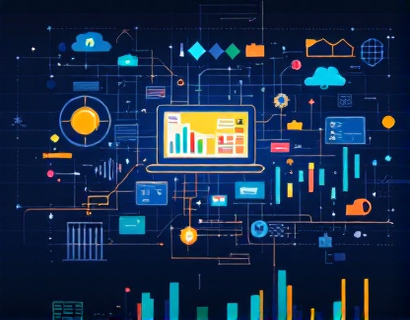Optimizing Educational Management with Specialized Software Solutions
In the rapidly evolving landscape of education, institutions are constantly seeking ways to enhance their operational efficiency and focus on delivering high-quality education. Specialized software solutions have emerged as a pivotal tool in this journey, offering tailored capabilities to streamline management, enhance communication, and boost overall performance. This article delves into the transformative impact of these software solutions on educational institutions, exploring how they can maximize potential and foster a more collaborative and effective learning environment.
The Need for Specialized Software in Education
Educational institutions face unique challenges that require sophisticated yet intuitive solutions. From managing student records and schedules to overseeing financial operations and communication, the tasks are diverse and complex. Traditional methods often fall short, leading to inefficiencies and a lack of cohesion. Specialized software addresses these gaps by providing comprehensive tools designed to meet the specific needs of educational environments. These solutions not only automate routine tasks but also offer advanced features that enhance decision-making and strategic planning.
Streamlining Administrative Tasks
One of the most significant benefits of implementing specialized software in educational institutions is the streamlining of administrative tasks. These tools automate processes such as enrollment management, attendance tracking, and report generation. By automating these tasks, administrators can save considerable time and reduce the risk of human error. For instance, automated enrollment systems can handle student registrations, course selections, and fee payments, providing a seamless experience for both students and staff. This not only improves efficiency but also enhances the overall user experience.
Student Information Systems
Student Information Systems (SIS) are a cornerstone of administrative efficiency in educational settings. These systems centralize and manage all student-related data, including demographics, academic records, and behavioral history. With a robust SIS, administrators can easily access and update student information, ensuring accuracy and consistency. This centralized data repository also facilitates better decision-making, as administrators can generate detailed reports and analytics to identify trends and areas for improvement. For example, identifying students at risk of falling behind academically allows for timely interventions and support.
Class Scheduling and Resource Allocation
Effective class scheduling is crucial for maintaining a well-organized academic calendar. Specialized software solutions offer advanced scheduling tools that consider various constraints such as room availability, teacher schedules, and student preferences. These tools can automatically generate optimal schedules, minimizing conflicts and ensuring that all requirements are met. Additionally, these systems can manage resource allocation, such as lab equipment and classroom supplies, ensuring that resources are used efficiently and effectively. This not only optimizes the use of available resources but also reduces waste and costs.
Enhancing Communication
Effective communication is vital in educational institutions, fostering a collaborative environment where students, teachers, and administrators can share information and ideas seamlessly. Specialized software solutions provide various communication tools that bridge the gap between different stakeholders. From email and messaging platforms to discussion forums and parent portals, these tools ensure that everyone stays informed and engaged.
Parent Portals
Parent portals are a powerful feature of modern educational software, providing parents with real-time access to their child's academic progress, attendance records, and communication with teachers. These portals empower parents to stay involved in their child's education, fostering a stronger home-school connection. Features such as grade tracking, assignment notifications, and message boards enable parents to monitor their child's performance and engage with teachers proactively. This level of transparency and involvement can significantly improve student outcomes and satisfaction.
Teacher Collaboration Tools
Teachers are the backbone of any educational institution, and facilitating their collaboration is essential for creating a dynamic and supportive learning environment. Specialized software offers collaboration tools that allow teachers to share resources, plan lessons, and discuss student progress in real-time. Integrated document sharing and collaborative editing features enable teachers to work together on curriculum development and lesson plans, ensuring consistency and quality across the board. These tools also facilitate professional development, as teachers can access training materials and best practices easily.
Boosting Operational Efficiency
Beyond streamlining administrative tasks and enhancing communication, specialized software solutions significantly boost overall operational efficiency in educational institutions. By automating routine processes and providing real-time data, these tools enable administrators to focus on strategic initiatives that drive institutional growth and improvement.
Financial Management
Effective financial management is crucial for the sustainability and growth of educational institutions. Specialized software solutions offer comprehensive financial management tools that simplify budgeting, accounting, and reporting. These tools can handle tasks such as invoicing, expense tracking, and financial forecasting, ensuring that financial data is accurate and up-to-date. Automated reporting features provide insights into financial performance, helping administrators make informed decisions and allocate resources more effectively. This level of financial oversight not only ensures compliance with regulatory requirements but also enhances the institution's financial health.
Facility Management
Managing physical facilities is another area where specialized software can make a significant impact. Facility management tools help institutions optimize the use of space, manage maintenance schedules, and ensure compliance with safety standards. These tools can track usage patterns, schedule maintenance tasks, and generate reports on facility conditions. By maintaining a well-managed and safe environment, institutions can enhance the learning experience and reduce operational costs associated with repairs and renovations.
Fostering a Collaborative Learning Environment
A collaborative learning environment is essential for fostering engagement, creativity, and academic success. Specialized software solutions play a crucial role in creating such an environment by facilitating interaction and cooperation among students, teachers, and administrators.
Learning Management Systems (LMS)
Learning Management Systems (LMS) are a key component of modern educational software, providing a centralized platform for delivering and managing online courses and educational content. LMS platforms offer a wide range of features that support various learning styles and needs. They enable instructors to create and upload course materials, assign assignments, and conduct assessments. Students can access course content, participate in discussions, and receive feedback in a structured and organized manner. The LMS also tracks student progress and performance, providing valuable insights for both instructors and students.
Project Management Tools
Project management tools within educational software help teams collaborate on complex projects, from curriculum development to campus improvements. These tools provide features such as task assignment, deadline tracking, and progress monitoring, ensuring that projects stay on track and within scope. By centralizing project information and facilitating communication, these tools enhance teamwork and productivity. For example, a committee tasked with updating the school's strategic plan can use project management tools to assign tasks, set milestones, and share documents, ensuring that everyone is aligned and working towards the same goals.
Enhancing Student Engagement and Outcomes
Ultimately, the goal of any educational institution is to enhance student engagement and improve academic outcomes. Specialized software solutions contribute to this objective by providing tools that support personalized learning, real-time feedback, and data-driven decision-making.
Personalized Learning Platforms
Personalized learning platforms use data analytics and adaptive learning technologies to tailor the educational experience to each student's needs. These platforms assess students' strengths, weaknesses, and learning preferences, adjusting the content and pace accordingly. This personalized approach ensures that students receive the support they need to succeed, leading to higher engagement and better outcomes. For instance, a student struggling with a particular concept can receive additional resources and practice exercises, while a student eExcelling in a subject can move ahead at their own pace.
Real-Time Feedback and Analytics
Real-time feedback and analytics are powerful tools for improving student performance. Specialized software solutions can provide instant feedback on assignments and assessments, allowing students to understand their mistakes and learn from them immediately. Instructors can also access detailed analytics on student performance, identifying trends and areas for intervention. This data-driven approach enables targeted interventions and support, helping students overcome challenges and achieve their full potential.
Conclusion
Specialized software solutions offer a transformative approach to optimizing educational management, enhancing communication, and boosting operational efficiency. By leveraging these tools, educational institutions can streamline administrative tasks, foster collaboration, and create a more engaging and effective learning environment. As technology continues to evolve, the potential for innovation in education grows, enabling institutions to focus on what matters most: delivering high-quality education that prepares students for success in a rapidly changing world.










































